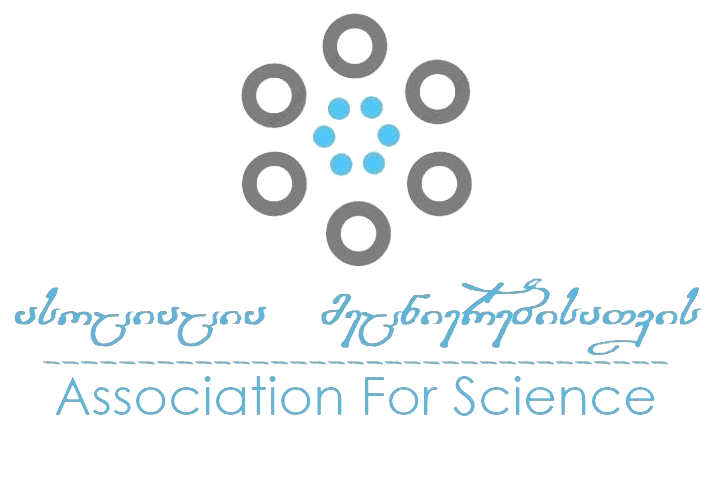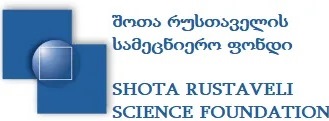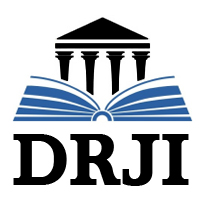The Matter Of Language Hierarchy And Language Attitude In The Georgian Political Discourse
DOI:
https://doi.org/10.55804/TSU-ti-2/BuskivadzeKeywords:
political discourse, code-switching, code-mixing, style-shifting, register-switchingAbstract
This research aims to study the matter of language hierarchy and language attitude through examining code-switching used by Georgians in Georgia, in the context of current political situation depicted in media discourse. Code in this research may refer to a language, a register and style. The study investigates 1. how language hierarchy is constructed and reconstructed by examining CS in political discourse; 2. how a change in audience/addressee influences CS; 3. how CS as a naturalistic and interactive phenomenon in spoken discourse is used to project speakers’ identity and their affiliation to their community. The three aims, being mutually inclusive, are explored in connection to intraspeaker CS in the interactional construction of identity. In particular, emphasis is placed on how speakers perform, project and negotiate their different personae at the individual or collective level. Data presented in this research was collected over a period of 12 months (July, 2023–July, 2024). 3210 videos were found from various internet media sources: TVFormula; MtavariTV; BM.GE; Rustavi2TV; ImediTV; and RadioTavisupleba. Out of which we randomly picked 400 videos. Out of which we grouped 55 example of style-shifting, 46 examples of register-switching and 14 examples of code-mixing; 5 examples of code-switching. These are the primary results; We are in the process of conducting matched-guise test (questionnaire) by using the collected examples.
References
Auer, P., ed. (1998). Code-Switching in Conversation. London: Routledge.
Amaglobeli, G. (2018). Types of Political Discourses and Their Classification. Journal of Education in Black Sea Region.
Buskivadze, K. (2021). Functions and Frequency of Using Code-switching in CLIL Lesson (Case Study, teaching Math (CLIL) in the private school, Tbilisi). International Journal of Multilingual Education, 218–231. https://doi.org/10.22333/ijme.2021.190025
Buskivadze, K. (2023). Language Behaviors Signifying Lecturers' Social Identity in the Business English Teaching Context, In M. Koc, O. T. Ozturk & M. L. Ciddi (Eds), Proceedings of ICRES 2023- International Conference on Research in Education and Science (pp. 650-663), Cappadocia, Turkiye. ISTES Organization.
Chilton, P. A. (2004). Analysing political discourse: Theory and practice. Routledge.
Corner, J. (2003). Mediated personal and political culture. Media and the Restyling of Politics.67-84.
Dijk, V. (1996). Discourse studies: a multidisciplinary introduction. Sage.
Edwards, J. (1982). “Language attitudes and their implication among English speakers,” in Attitudes towards language variation, E.B. Ryan and H. Giles, Eds. London: Edward Arnold, pp. 20-33.
Giles H. & Marlow M. (2011). Theorizing Language Attitudes Existing Frameworks, an Integrative Model, and New Directions 1, Annals of the International Communication Association.
Green, D.W. (2018). Language Control and Code-switching. https://doi.org/10.3390/languages3020008
Gumperz, J.J. (2015). Interactional Sociolinguistics, A Personal Perspective. In The Handbook of Discourse Analysis (eds D. Tannen, H.E. Hamilton and D. Schiffrin). https://doi.org/10.1002/9781118584194.ch14
Loureiro-Rodríguez, V., & Acar, E. F. (2022). The Matched-Guise Technique. In R. Kircher & L. Zipp (Eds.), Research Methods in Language Attitudes (pp. 185–202). chapter, Cambridge: Cambridge University Press.
Opeibi, T. O. (2007). One message, many tongues: An exploration of media multilingualism in Nigerian political discourse. Journal of Language and Politics 6 (2).223—248.
Sophocleous, A. (2012). Switching code and changing social identities in face-to-face interaction. Sociolinguistic Studies. 5. 10.1558/sols.v5i2.201.
Wei, L. (2005). “How can you tell?”: Towards a common-sense explanation of conversational code-switching. Journal of Pragmatics, 37(3), 375-389.
Downloads
Published
How to Cite
Issue
Section
License
Copyright (c) 2025 Authors Retain All Rights. TSU-ti has Only the Right of the First Publication.

This work is licensed under a Creative Commons Attribution-NonCommercial-NoDerivatives 4.0 International License.










